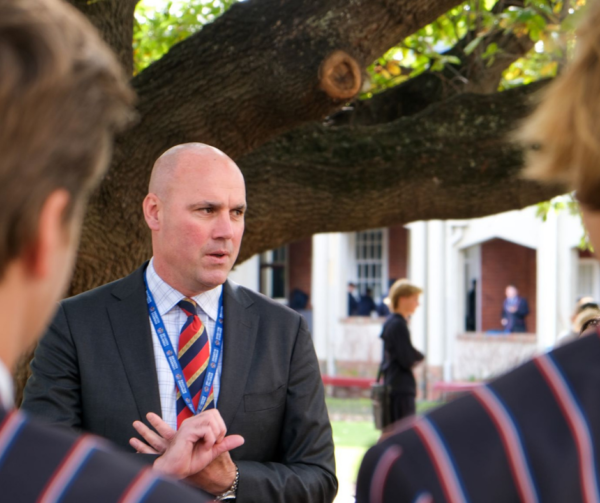Taking the stress out of ATAR
Supporting the mental health of students under pressure is critical writes Effie MannThe correlation between high performance and mental health has been brought into sharp focus, with tennis champ Naomi Osaka and American gymnast Simone Biles joining a growing list of professional athletes speaking out about the difficulties of maintaining a healthy balance.
It’s a battle that high-performance mind coach Emma Murray says transcends the sporting arena. She compares the pressure and expectations piled on senior school students to that of the athletes and professionals she coaches.
Students, however, can miss out.
Instead of saying it’s “just school”, Murray says parents and educators need to respect the pressures their teens are under and offer adequate support “because these kids are burnt out”.
Murray has adapted her High-Performance Mindfulness program for secondary students, with an online platform providing tools and strategies to achieve school success while managing the associated stress and anxiety in a healthy way.
The program, rolled out by five Victorian schools at the start of 2021, is one of the ways educators are working with families to alleviate the stress surrounding the ATAR (Australian Tertiary Admission Rank), as student well-being takes centre stage.
One early adopter is Brighton Grammar, in Melbourne’s south-east – Murray’s son is a past student. Headmaster Ross Featherston says the response so far has been positive.
“Uptake from the students has been really pleasing,” he says. “Kids are engaging with it in a meaningful way, so it’s a promising start.”
The program dovetails with Brighton Grammar’s existing mindfulness initiative and is complementary to many other working structures the school has developed to ensure high achieving isn’t to the detriment of student mental health.
“A little bit of pressure can be a good thing because it can motivate kids,” Featherston says. “But, obviously, the danger is when it becomes too much, and they start to worry, start to get anxious.”
Featherston says successful management of student expectations relies on parents, teachers and students all “singing from the same hymn sheet”. For this reason, the school runs a “parent engagement program” during year 12, connecting the parents of current students with past parents and students for advice, fortnightly updates by way of the VCE co-ordinator, and regular check-ins with their child’s teachers.

Nakkita Egan, head of students at St Columba’s College, a Catholic girls’ school in Melbourne’s north-west, says a student’s home life can greatly impact their success and stress levels.
Egan suggests setting aside regular time to spend together as a family to nurture healthy conversation and strengthens relationships for when the going gets tough.
Additionally, sticking to a good routine that includes a healthy diet, exercise, and lots of sleep has a calming influence and can keep stress levels low.
Egan agrees with Emma Murray that downtime is critical, too.
“Helping students to do some of the things they love and supporting them to practice self-care is vital,” she says.
Featherston, meanwhile, says his students are encouraged to break down what they want to achieve into “bite-sized chunks”.
“If I was to use a sporting analogy, it’s to not worry about if you’re going to win the race or the game; focus on the training and the teamwork and building the skills you need to perform well when you’re off playing that game.”

Year 12 students are encouraged to study into the evenings with their friends on campus with teacher supervision and additional tutoring by “past scholars” – recent Brighton Grammar alumni hired to help current VCE students.
While it’s important to encourage your kids to study and engage with their school work, Egan says that focusing solely on maximising an ATAR score can mean the skill and joy of learning are lost – “and when learning becomes a chore, the stress sets in!”
This piece by Effie Mann was published in the Domain Review, August 11-17 2021 edition with the heading ‘Alleviating ATAR stress‘.

